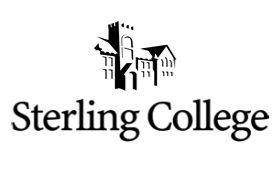Students Learn Life Lessons at Hutchinson Soup Kitchen

This experience made me realize I take a lot for granted. It has made me more thankful for what I have in my life," said Tori Swenson of Yoder, Kan.
"My perspectives of the poor changed, and I realized it is the little things that really help," said Vance Stegman of Lyons, Kan.
Swenson and Stegman are both first-year education students at Sterling College who took Cultural Diversity in Education with Professor Spencer Wagley this fall. They made the above comments after a trip to the Christian Soup Ministry in Hutchinson, where the College students prepared, served, delivered and cleaned up the noon meal. The purpose of the experience, according to Professor Wagley, was "for the students to put feet to their faith. They were able to help those less fortunate and to see that poverty does not discriminate. Since the soup kitchen serves people from many different backgrounds, the students were able to observe true diversity and see they can make a difference in someone's life."
The students' responses reveal they learned these lessons. "I used to believe if a person had little money they couldn't perform as well as people with money," said Stegman, "but seeing (one of the patrons playing the piano) changed my perspective. This man played just as well as many of my college friends."
"I think many of us were quick to stereotype these people," said Abe White of Mulvane, Kan., "but then I interacted with one of the men who had worked all day. I was amazed when I heard him tell about his work. We cannot judge or stereotype people based on how they look or dress."
The students also understood these lessons apply to their future careers. "Serving at the soup kitchen will help me remember when I'm a teacher that not all my students will have had good meals. That may be why they have trouble focusing," said Candace Ewert, a first-year student from Ogallala, Neb. And as Abe White boxed up meals to be delivered to people who had no transportation to the soup kitchen, he learned that "to become the best teacher possible, it is a must for me to realize every person is different and has different needs. I need to find out those needs and learn how I can relate to them."


